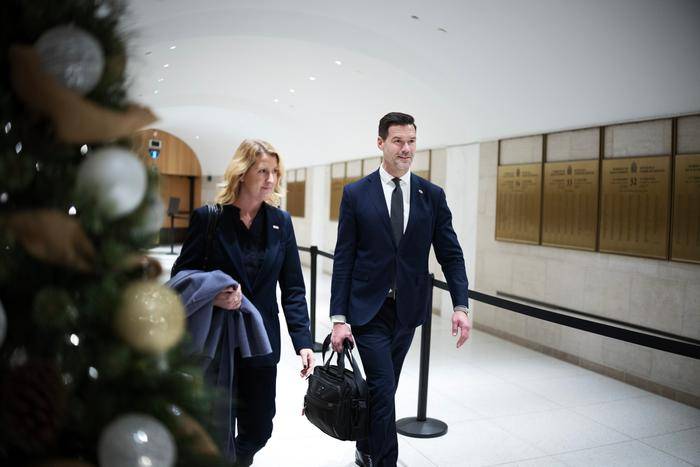Sweden Embarks on Comprehensive Overhaul of Migration Policy, Prioritizing Integration and Border Control
The Swedish government has unveiled a sweeping overhaul of its migration policy, marking a significant shift towards a more restrictive and integrated approach. The new policy framework, which has been in development for several months, aims to strike a balance between humanitarian concerns and the need to maintain public trust and social cohesion.
At the heart of the new policy is a renewed emphasis on integration, with a focus on ensuring that newly arrived migrants are equipped with the skills and knowledge necessary to succeed in Swedish society. This includes mandatory language training, civic orientation, and job placement programs.
In addition to its integration focus, the new policy also places a strong emphasis on border control and security. The government has pledged to increase funding for border patrol agencies and to implement new technologies, such as biometric identification systems, to enhance security and facilitate the detection of irregular migrants.
Another key aspect of the new policy is the introduction of a "safe countries of origin" list, which will be used to determine the eligibility of asylum seekers for refugee status. The list, which will be regularly updated, will identify countries that are deemed to be safe and stable, and from which asylum seekers will generally not be eligible for refugee status.
The new policy also includes stricter asylum rules, including a reduction in the number of family reunification visas available and a tightening of the eligibility criteria for asylum seekers. The government has also pledged to increase the use of detention centers for asylum seekers who are deemed to be a flight risk or who have been denied refugee status.
Finally, the new policy emphasizes the importance of international cooperation in addressing the root causes of migration and in sharing the responsibility for protecting refugees. The government has pledged to work closely with other EU member states, as well as with international organizations such as the UNHCR, to develop more effective and sustainable migration policies.
The new policy has been welcomed by many stakeholders, including opposition parties and migrant organizations. However, some critics have expressed concerns that the policy may be too restrictive and may undermine Sweden's traditional commitment to humanitarian values.
"The new policy is a step in the right direction, but it must be implemented in a way that is fair and humane," said Amelie Strandberg, a spokesperson for the Swedish Migration Agency. "We must ensure that the rights of all migrants, regardless of their status, are protected and respected."
The new policy is expected to have significant economic and social implications for Sweden. On the one hand, the policy may help to reduce the economic burden of migration on the Swedish taxpayer. On the other hand, the policy may also lead to a reduction in the number of skilled migrants entering the country, which could exacerbate labor shortages in key sectors such as healthcare and technology.
Sweden's new migration policy marks a significant shift towards a more restrictive and integrated approach. While the policy has been welcomed by many stakeholders, critics have expressed concerns that it may be too restrictive and may undermine Sweden's traditional commitment to humanitarian values. As the policy is implemented, it will be important to monitor its impact on migrants, communities, and the economy, and to make adjustments as necessary to ensure that the policy is fair, humane, and effective.



No comments yet
Be the first to share your thoughts!